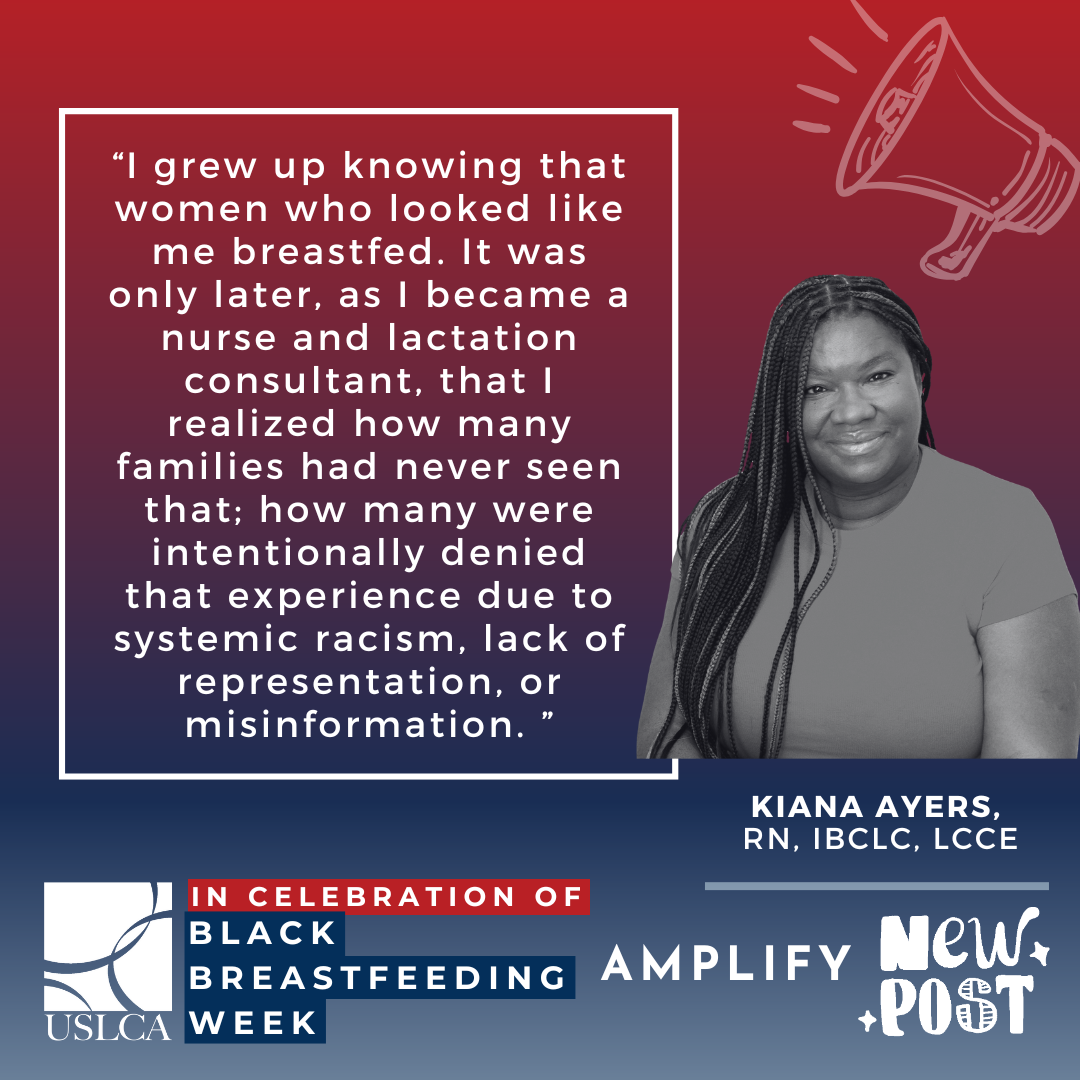By Ashley Weber, PhD, RN, RNC-NIC
 Last year the Journal of Human Lactation published a case study titled, “Realigning Expectations with Reality: A Case Study on Maternal Mental Health During a Difficult Breastfeeding Journey.” Below is the story of the “30 yr G1P1 mother, NICU nurse, and PhD prepared researcher who couldn’t breastfeed [her] baby.” Thank you, Ashley, for sharing your story with us.
Last year the Journal of Human Lactation published a case study titled, “Realigning Expectations with Reality: A Case Study on Maternal Mental Health During a Difficult Breastfeeding Journey.” Below is the story of the “30 yr G1P1 mother, NICU nurse, and PhD prepared researcher who couldn’t breastfeed [her] baby.” Thank you, Ashley, for sharing your story with us.
With over a decade of experience helping mothers breastfeed their high-risk infants, I couldn’t wait for the chance to nurse my own little one. We had a difficult delivery that almost resulted in a C-section, but I was confident that my clinical experience would help us succeed in our breastfeeding journey. When he developed transient tachypnea and was admitted to the NICU for 30 minutes, I felt empty. But he was sent back, and we started nursing for the first time. He latched, munched a bit, then fell asleep. The Lactation Consultant (LC) at the hospital observed us several times and helped me hand-express milk into a cup to feed my son. I was in excruciating pain from delivery, resulting from a Stage 4 tear that eventually became infected; the hospital OB team refused to give me anything other than ibuprofen because of the opioid crisis. I had trouble holding my son because of the pain. Finally, I convinced my OB to give me a 7-day prescription of Percocet along with the antibiotics so that I could function.
During my son’s first few days of life, we had trouble keeping him latched on. He seemed to be in pain when I tried to nurse him on my right side, and his neck and shoulder muscles were extremely tight. When nursing after a few minutes, he would cry, flail, and eventually fall asleep, exhausted. At our first primary care appointment on day of life (DOL) 4, our pediatrician didn’t seem to agree with my assessment and concerns that he was uncomfortable during nursing. By DOL 9, he hadn’t pooped in 5 days, had 6 barely wet diapers in 24 hours, and his urine was the color of tea. My critical care instincts kicked in, and we immediately got an appointment with the pediatrician on call. I had taken care of plenty of healthy term infants who had ended up in the NICU for dehydration, and who wanted that? The pediatrician recommended that I pump and that we bottle feed him either breastmilk or formula at least 2-3 oz every 2-3 hours. We would reassess in 48 hours. As a NICU nurse, I didn’t believe in nipple confusion—I had seen many of my NICU patients bottle and breastfeed successfully. In some ways, it was a relief because Emmet was finally satisfied after a feeding. He would CHUG those bottles that mommy and daddy gave him.
What I wasn’t prepared for was the all-out battle that each breastfeeding session would become after we were done with 48 hours of bottles, good urine output, and weight gain. Each nursing session was a fight. He would latch on, off, on off, then after a few minutes get really, really mad. Flailing, crying, beet red, mottled mad. He was so dysregulated that I would fall apart and start crying, and the whole thing would spiral. I couldn’t calm him during the beginning of the feed to keep him regulated enough to nurse well. I tried switching to a bottle for a bit and then transition to the breast. He would wail when the bottle was pulled. He would become so upset I had to wrestle him down, and almost hold him down at the breast so he would try to nurse. We tried kangaroo care first to calm, and he would migrate down, nurse for a few minutes, then become dysregulated again. Nothing seemed to work. Concerned, I took him to our hospital’s outpatient lactation clinic, and to the tri-weekly breastfeeding support groups that our local hospital offered for free. At our first appointment, the LC agreed with me that his neck and shoulders were tight, and that he seemed uncomfortable. She recommended daily infant massage.
I was committed to breastfeeding and would just have to triple-feed and hunker down a few more weeks. My husband helped me wash pump parts and bottle feed, but eventually he went back to work, and so did I. We spent 1.5 hours of each 3-hour cycle feeding. Each LC appointment, I would try to hone my methods, scraping for more time, and more milk. Thirty minutes breastfeeding, 15 minutes bottle, 5 minutes to make formula and supplement, then 40 minutes for pumping, washing, assembling. I would make sure to “power pump” at least once a day to up my supply. I ate my oatmeal and Fenugreek, but never made enough milk to satisfy him. He was a big man, who wanted his food, his way, NOW.
The triple feeding method was exhausting, demoralizing, and untenable. In my NICU practice, we had always been taught to avoid the triple feed, to do everything possible to not triple feed. I knew I didn’t have the energy to keep this up. Every other day, I would go to a breastfeeding support group, where the LC would encourage me to keep going. But the lack of respite during those 24 hours and lack of sleep made me fall apart. I couldn’t keep it together; I couldn’t remember anything anyone ever said. I was in a fog.
I felt like a complete idiot at our lactation appointments. With the LC and Evan there, Emmet would latch on, cry for a bit, then the LC would be able to calm him, and he would nurse for 5-10 minutes at a time. “I don’t think you need me” —is what several LCs would say. They were warm and caring. They were so patient, repeating information as much as I needed. Each time I left the office, I felt like I had a plan and would turn things around. But when we got home, things would always fall apart.
Many times the LCs would comment, “You need to relax. Babies feed off our energy. Do you think he is feeling your stress?” Of course he’s feeling my stress! Of course I need to relax! I knew my situation was completely ridiculous. I was abnormal, I was wrong. And yet, I couldn’t fix it. And I couldn’t un-feel what I felt. I felt like an outsider looking in on my own body. I knew I had severe postpartum depression, that I was disconnected, and unattached. Here, I was, a mother who had a completely healthy, relatively happy, beautiful term baby, and yet, I wasn’t in love with him. I didn’t even LIKE him. I certainly wasn’t happy or proud to be a new mom. He was, instead, one more chore or task to take care of, a nuisance like the laundry or dusting. I knew how absurd this was. I felt like an insult to all those families I had cared for over the years, who had suffered so much, and who would be elated just for the chance to take their baby home, alive. I felt like a failure. I felt like a fraud, encouraging mothers of complex, critically-ill infants to breastfeed, when I couldn’t even breastfeed my own. I felt embarrassed to answer my colleagues and friends, who shared how wonderful and precious the time they had nursing their children was. I felt incoherent, tired, and disgusting.
Finally, during one of our weekly appointments, an LC asked me, “Do you want to stop?” A moment of relief, and weakness. “I don’t want to stop if I knew there was a light at the end of the tunnel. Nothing is more important than my relationship with my son. If breastfeeding ruins our relationship, if it continues to be a fight every 1-2 hours, and it won’t get better, I want to stop. But I don’t want to stop because it’s easier, because I am weak. I know breast is best, but maybe it is not best for us, right now.” I cried. But I wasn’t about to put breastfeeding before my son’s and my own health and happiness.
So I pumped. And we bottle fed with my milk and with formula. We still had lots of kangaroo care snuggle time. I would let him “nurse” for pleasure, but no pressure, no need to feed. I remember after the decision to “stop,” he would nurse, look up at me, unlatch, again. “Hi sweet boy, you can nurse as little or as long as you want. Let me know when you want a bottle.” He looked up at me, his brow furrowed, confused, then smiled. No pressure? I can do whatever I want?!? This is great! He would latch back on, happily. Then unlatch, and latch again. After he was done playing, nursing, or both, or would push my guilt and stress aside, and enjoy him while giving him a bottle. We had A LOT of bottles.
And that was our routine, from 2-4 months of age. Then, one day, he was exclusively nursing when I was home. The transition didn’t happen overnight. I honestly didn’t even realize it. And there we were. A natural, happy, breastfeeding dyad. My postpartum depression eventually lifted. I started to feel more confident in my parenting abilities, then healed physically and mentally, and was getting better sleep. And by 5 months, I was in love. HEAD OVER HEELS in love with my baby. He was MY BABY. We were finally normal. Looking back, I am not sure whether I would or could have done anything differently. I still believe that our difficult delivery made breastfeeding difficult. I still believe that for his safety, we had to bottle feed during those critical 48 hours of dehydration. I do wish my doctors had been able to keep my pain under control, that I could have received opioids sooner. And perhaps, I should have made the decision to “stop breastfeeding” sooner.



